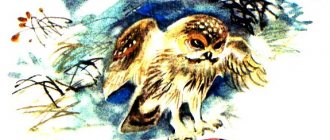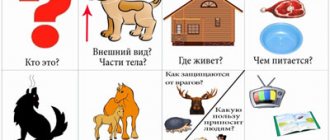General information
Birds help people a lot. Some bring benefits in the form of meat and eggs, while others help fight plant pests. Their body structure is ideal for flight and is covered with feathers to retain heat. In the warm season, everything around is filled with beautiful sounds thanks to them. But when cold weather sets in, everything calms down. It becomes too difficult for the birds to get food for themselves, so they are divided into two camps.
The first ones fly away to warm regions, covering a long distance, not wanting to stay and adapt; such birds are called migratory. The latter, on the contrary, remain, adapt to the cold, find ways to obtain food and winter well in their usual regions; such birds are called winterers.
The most famous wintering birds
Due to their structure and ability to withstand cold weather, there are birds in the region that do not leave their native land in the fall . Among them are:
- Pigeons
. These birds are known to everyone. At any time of the year they can be seen in parks and squares. Pigeons are distinguished by the fact that they are not just sedentary, but also territorially attached to a place. When a dove flies away, it will always return. People took advantage of this by inventing pigeon mail. Their body temperature is so high (about 41 degrees) that no frost can overcome these birds. They are omnivores, which helps them obtain food in winter. - Sparrows
. No less famous birds in Russia. These little nimble birds are everywhere. They are distinguished by their sociability, excellent memory and cheerful chirping. It is the sparrows that are the very first to rejoice at the coming spring, chirping loudly, thereby conveying their cheerful mood to those around them. - Tits
. These yellow-breasted birds are not at all inferior to their brothers, but still not as nimble as, for example, sparrows. However, you can often find a flock containing both sparrows and tits. In the warm season, they live in forests and protect them from pests by eating caterpillars and insect larvae. When it gets cold, tits fly to a city or village to make it easier to find food for themselves. - Crossbills. Birds with bright colors and an interesting beak designed for removing grains from cones. These birds are known for their ability to have offspring and sing in severe frosts. Excellent acrobats, who easily climb trees and, if necessary, reach a pine cone, can hang upside down on a branch. Thanks to its love for cones, the crossbill protected itself from enemies. The fact is that due to the consumption of cone grains, which contain resins from coniferous trees, the bird’s meat becomes bitter, so no one attacks the crossbills.
- Crows
. These birds, like other representatives of the list of wintering birds, remain in their native lands with the onset of cold weather. Crows are very smart. Studies have shown that their mental abilities are close to the development of a five-year-old child. Their intelligence proves their ability to defend their nests from attacks by enemies, throwing stones at the latter. Although crows themselves love to destroy other people's nests. These birds are unpretentious in food, which allows them to easily endure harsh winters. True, crows are lovers of carrion, but in winter such delicacies are quite difficult to find, so they are content with what they find. - Bullfinches
. The most striking representatives of wintering birds. During the cold season, these little birds are forced to fly to the city to facilitate their search for food. Bullfinches are distinguished by their sonorous trills; we can say that their singing is unique. Birds in winter feather their feathers and turn into bright balls that decorate the trees. Apparently, this is why the bullfinch has become a kind of symbol of winter. Often his photographs and images are placed on New Year's products and cards. The favorite delicacy of bullfinches is rowan, but they do not eat the pulp of the fruit, being content only with grains. - Waxwings
. In winter, completely non-local residents appear in cities - these are waxwings. They lead a nomadic rather than sedentary lifestyle, but still do not fly far. They live in the north, and during the cold season they fly to the southwest to make life easier during difficult times of the year. In summer, these birds prefer insects and their larvae, and in winter they are content with various berries: rowan, barberry, hawthorn and others. But since the berries are quite heavy for the intestines of waxwings, therefore, partially digested, left after the birds, they sprout more easily in the spring. So, birds help grow new bushes. They are on the list of birds wintering in Siberia. - Jays
. These cautious birds also remain to winter in their usual areas, with the exception of northern places, from where they migrate to warmer regions. They are careful because they are guardians of safety for other birds. They listen sensitively and tell everyone around them that danger is coming. The bird is so careful that it is very difficult to see it. The mockingjay is called the mockingjay for its ability to reproduce various sounds and voices. Dog barking and door squeaking are not a problem for the jay to imitate. They love to eat in hazel trees, especially acorns. She is distinguished by her ability to bury nuts in the ground for the winter, and in such quantities that not only the workers themselves, but also other inhabitants of the forest feed on the reserves all winter. - Nuthatches
. Another representatives of wintering birds. Like jays, they are distinguished by their ability to stockpile. Nuthatches hide them in trees, not far from the nest. But, unlike jays, these birds are not at all so hospitable. They do not allow anyone, not even their brothers, to get close to their supplies. When choosing a place for a nest, nuthatches look for a tree with a hollow and set up their home there. Like many birds, in the warm season they feed on insects, and in the cold season they eat everything they have stored and various berries. They lead a mostly sedentary lifestyle, but sometimes roam with tits. - Woodpeckers
. Everyone knows the red-headed birds that tap out simple melodies by hitting wood with their beaks. Forest orderlies - this is what we have known about woodpeckers since childhood. They rarely leave their homes, and only in the most difficult times do they migrate to a more suitable environment. However, if the woodpeckers fly away, they will not return. Birds, landing on a tree, begin to study it from the bottom up, climbing in a spiral, hollowing out insects from the bark. In the warm season they feed mainly on tree pests, and in winter on various grains, nuts and seeds. - Magpies
. Birds belonging to the non-migratory class. It is quite rare to appear near people in the summer, but the winter need for food forces even a magpie to fly to the feeder in the hope of kind people. Very cunning and dexterous. They can easily outwit and eat even a dog. Famous thieves. So they try to steal something. Magpies are unpretentious in food, so they will be happy with any prey - from berries to newborn chicks from someone else's nest.
This list can be continued for a very long time; wintering birds, their names and photos can be found in various sources.
The information is collected bit by bit in encyclopedias prepared by scientists who study birds. But, besides those who stay at home, there are representatives who prefer to bask in the sun during the cold, harsh winter and return home only in the spring.








